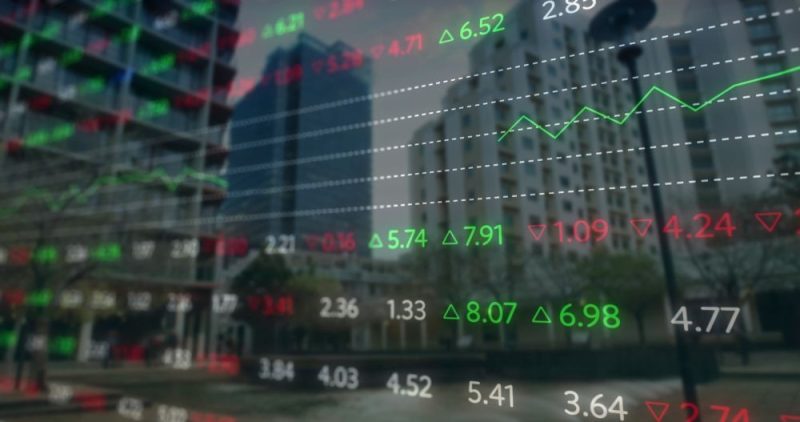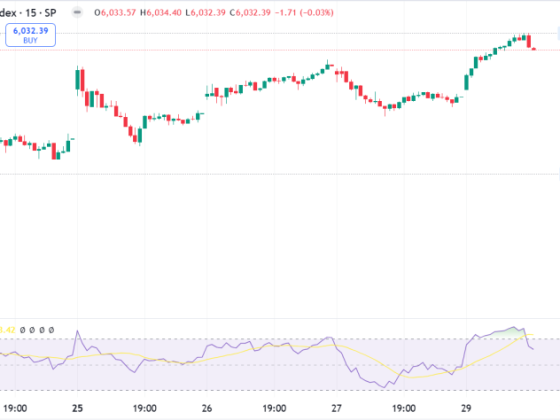European markets experienced a downturn on Friday, with the pan-European STOXX 600 index declining by over 1%, reaching its lowest point in nearly a month.
This decline marked the worst weekly performance for European stocks in three months.
The market’s downturn was influenced by US President-elect Donald Trump’s statements regarding potential tariffs on the European Union unless it purchases US oil and gas to offset its trade deficit.
This added to investor concerns amid ongoing political turmoil in the U.S.
UK stocks drift lower on weak retail sales
UK equities fell on Friday as November retail sales data revealed weaker-than-expected growth, signaling continued caution among consumers.
Retail sales inched up by just 0.2% last month, falling short of analysts’ expectations of 0.5% growth and following a 0.7% decline in October.
Year-over-year growth also slowed to 0.5%, compared to 2.0% in October.
Separately, government data showed a narrowing budget deficit in November, with public sector net borrowing decreasing by £3.4 billion to £11.2 billion, the lowest November figure since 2021.
Reduced debt interest payments and higher tax revenues contributed to the improvement.
The FTSE 100 dropped 61 points, or 0.8%, to 8,044, extending Thursday’s 1.1% loss.
French stocks dip over trade tensions
French markets experienced sharp declines on Friday as worries over US-EU trade tensions and a potential government shutdown in the United States weighed on sentiment.
The benchmark CAC 40 fell 98 points, or 1.4%, to 7,196, following a 1.2% decline in the prior session.
German Markets Under Pressure Despite Unexpected PPI Recovery
German stocks tumbled on Friday, driven by global uncertainties linked to US political challenges and trade friction.
On the economic front, data from Destatis showed a surprising rebound in German producer prices, which rose by 0.1% year-on-year in November after a 1.1% decline in October.
Economists had anticipated a further drop of 0.3%. This marks the first annual increase in producer prices since June 2023.
Despite the positive data, the DAX slipped 230 points, or 1.2%, to 19,740, building on a 1.4% decline from Thursday.
Asian peers jittery
Asian equities had a mixed session on Friday, reflecting investor caution over the Federal Reserve’s rate outlook and political uncertainty in the US.
Attention now turns to the US Personal Consumption Expenditure (PCE) data, the Fed’s preferred inflation gauge, expected later in the day.
The results could influence the central bank’s rate trajectory under the new administration.
China’s Shanghai Composite ended slightly lower at 3,368.07 after fluctuating throughout the day.
The People’s Bank of China kept the one-year loan prime rate at 3.10% and the five-year rate at 3.60%, defying market expectations of a rate cut.
Hong Kong’s Hang Seng Index declined by 0.16% to 19,720.70 after a volatile trading session.
Japanese markets dipped as inflation rose to 2.9% in November from 2.3% in October, marking its highest level since October 2023.
The Nikkei fell 0.29% to 38,701.90, and the broader Topix index dropped 0.44% to 2,701.99.
The Kospi declined 1.30% to 2,404.15, weighed down by a stronger dollar and ongoing political challenges.
Australian markets fell sharply, led by losses in financial and consumer stocks.
The S&P/ASX 200 dropped 1.24% to 8,067, while the All Ordinaries Index lost 1.17% to close at 8,316.70.
The post European stocks feel the heat after Trump’s tariff threat: FTSE down 0.6%, CAC 40 Slips Over 1% appeared first on Invezz


